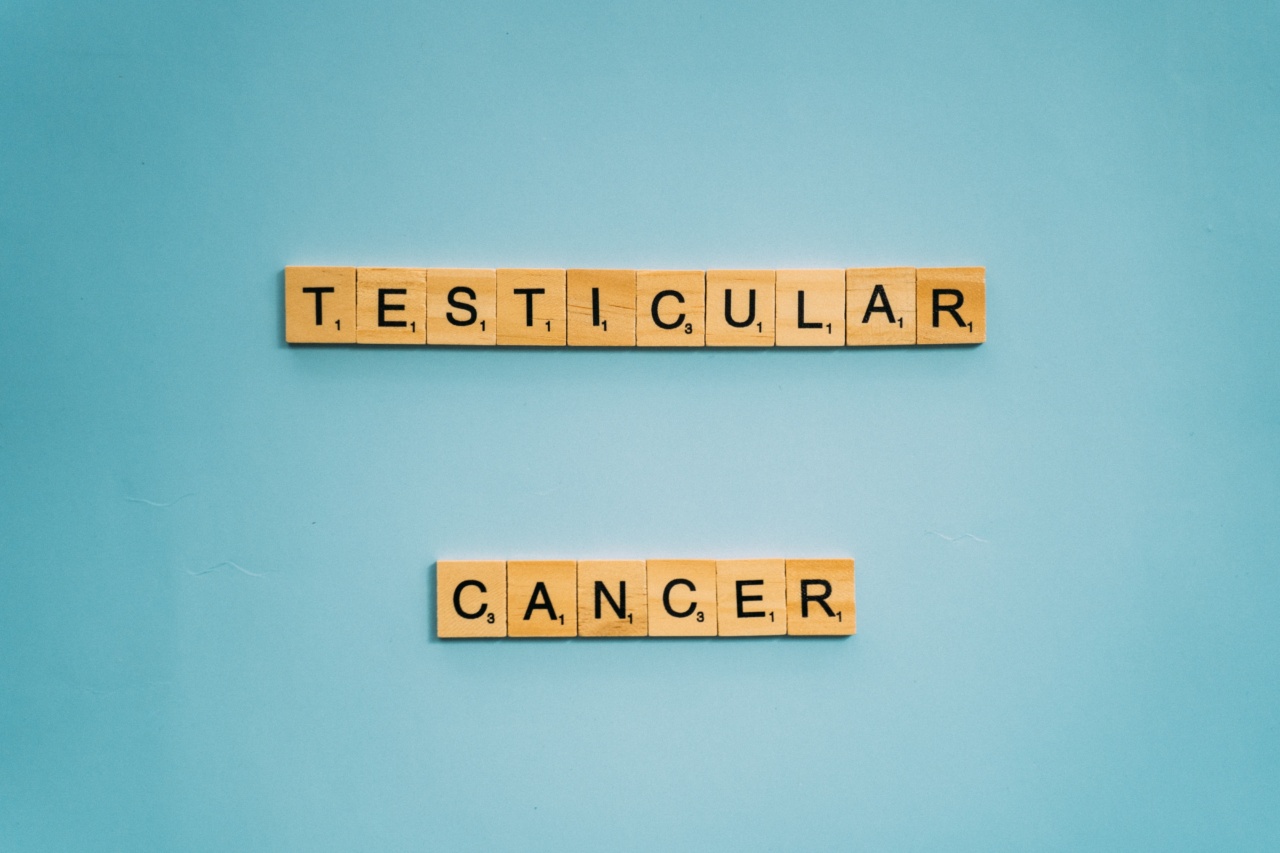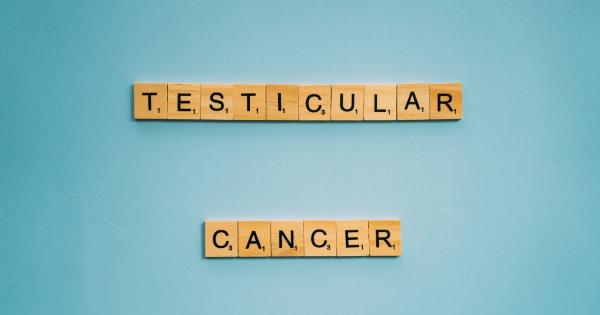Testicular cancer is a rare form of cancer that starts in the testicles, the male reproductive gland. It is highly curable, especially when found early. Knowing what to look for may help detect cancer in its early stages.
Here are the early signs of testicular cancer to watch out for:.
1. A Lump or Swelling in the Testicles
The most common early sign of testicular cancer is a lump or swelling in the testicles. It may feel like a small, hard, painless lump, or a larger, softer, more tender lump. The lump may grow quickly or slowly, or it may stay the same size for some time.
If you notice a lump or swelling in the testicles, see your doctor right away. It is essential to rule out testicular cancer, as lumps or swelling could also be caused by other conditions, such as testicle injury or infection.
2. A Dull Ache or Pain in the Testicles or Scrotum
A dull ache or pain in the testicles or scrotum is another early sign of testicular cancer. The pain may be mild or severe and may come and go. It may also be accompanied by swelling, tenderness, or discomfort in the groin or lower abdomen.
If you experience any pain or discomfort in your testicles or scrotum, see your doctor, especially if it does not go away after a few days.
3. Breast Growth or Tenderness
In some cases, testicular cancer can cause breast growth or tenderness in males. This is because testicular cancer cells may produce hormones, such as estrogen or human chorionic gonadotropin (HCG), that can stimulate the growth of breast tissue.
If you notice any breast growth or tenderness, see your doctor for further evaluation.
4. Fatigue, Weight Loss, or Night Sweats
Testicular cancer can cause other symptoms besides those related to the testicles. Some men with testicular cancer may experience fatigue, weight loss, or night sweats.
These symptoms may be caused by the cancer’s effect on the body’s metabolism or immune system. If you notice any of these symptoms, see your doctor to get a proper diagnosis.
5. Lower Back Pain or Abdominal Pain
In advanced cases of testicular cancer, the cancer may spread to other parts of the body, such as the lymph nodes, lungs, or liver.
This can cause lower back pain or abdominal pain, as well as other symptoms, such as difficulty breathing, persistent cough, or chest pain. If you experience any of these symptoms, see your doctor immediately.
6. Difficulty Breathing or Shortness of Breath
If testicular cancer has spread to the lungs, it can cause difficulty breathing, shortness of breath, or a persistent cough. These symptoms may be accompanied by chest pain or wheezing. If you experience any of these symptoms, see your doctor right away.
7. Swelling or Lumps in the Neck or Collarbone Area
If testicular cancer has spread to the lymph nodes, it can cause swelling or lumps in the neck or collarbone area. These lumps may be painless or tender to the touch.
If you notice any swelling or lumps in these areas, see your doctor for further evaluation.
8. Bloating or Discomfort in the Abdomen
If testicular cancer has spread to the abdomen, it can cause bloating or discomfort in the area. This can be caused by the cancer’s effect on the digestive system or by the pressure from the growing cancer.
If you experience any bloating or discomfort in the abdomen, see your doctor for further evaluation.
9. Nausea or Vomiting
If testicular cancer has spread to the digestive system, it can cause symptoms such as nausea or vomiting. These symptoms may be accompanied by bloating, abdominal pain, or a loss of appetite.
If you experience any of these symptoms, see your doctor for further evaluation.
10. Changes in Urination
If testicular cancer has spread to the lymph nodes or other organs near the bladder or urethra, it can cause changes in urination. This can include pain or burning during urination, a frequent need to urinate, or blood in the urine.
If you experience any of these symptoms, see your doctor for further evaluation.
Conclusion
Testicular cancer is a rare but serious condition that can affect males of any age. Knowing the early signs of testicular cancer is essential to catching the cancer in its early stages when it’s most treatable.
If you notice any of the above symptoms, see your doctor right away. With early detection and proper treatment, most cases of testicular cancer can be cured.



























